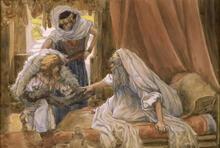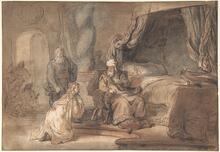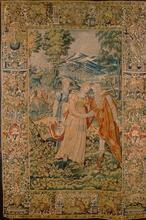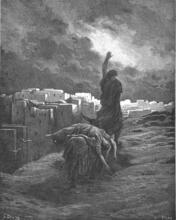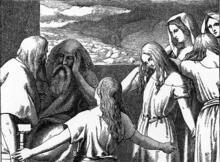Mahalath, daughter of Ishmael: Midrash and Aggadah
Midrash and Aggadah present both a positive and a negative take on the marriage of Esau, son of Isaac and Rebekah, to Mahlath, daughter of Ishamel.
Article
The Rabbis identify Mahalath with Basemath (based on the exchange of names between Gen. 28:9 and 36:3; cf. “Esau’s Wives”). Some of the Rabbis maintain Esau’s marriage to Mahalath the daughter of Ishmael reflected his desire to repent of his evil deeds and act in accordance with the wishes of his parents Isaac and Rebekah for a proper mate (JT Bikkurim 3:3, 65c–d). Mahalath’s name indicates that the Holy One, blessed be He, pardoned (mahal) Esau for all his wickedness. Her other name, Basemath, also teaches that by this marriage Esau’s character improved (nitbasmah; Gen. Rabbah 67:13).
However, according to another view, this marriage resulted from negative motives (Gen. Rabbah, loc. cit.): Esau married the daughter of Ishmael, and he and his father-in-law plotted to kill Isaac and Jacob and thereby inherit both families (Gen. Rabbah 67:8). This negative attitude to Esau is based on his not divorcing his two Hittite wives Adah and Judith when he married Mahalath, even though he knew that they were displeasing to his parents. If he had married Mahalath to fulfill his parents’ bidding, he should have divorced them; since he did not do so, he merely increased his parents’ pain and suffering (mahalah, literally, sickness). Indeed, Mahalath was as wicked as Esau’s first two wives (Midrash Aggadah, ed. Buber, 28:9).

